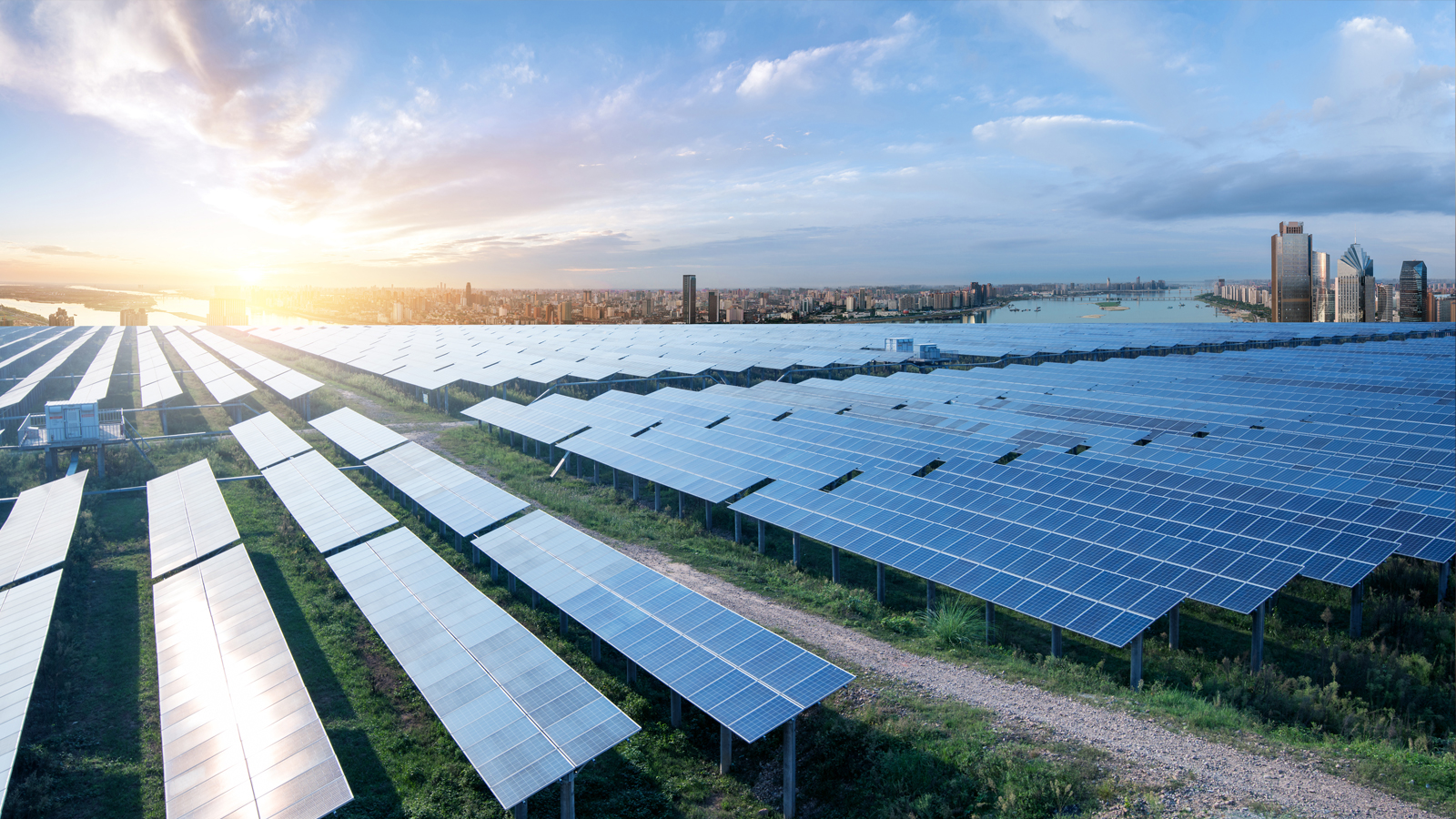This guide is intended for solar contractors, installers, EPCs and brokers who are purchasing solar equipment with the intention of reselling it. Whether your target customer is a homeowner, business or another broker, this guide provides insights for navigating the PV solar supply chain with the goal of maximizing your profits.
The solar industry is well known for its established relationships. As industry professionals, you’ve probably worked hard to form and nurture partnerships with wholesale suppliers.
But are your supply chains really serving your business and customers the best they possibly can? Have you found gaps that hinder your relationships with your customers? Or, have you discovered bottlenecks that cost you sales with prospects?
Even if you’re feeling good about your supply chain management, you may want to gut-check yourself. Taking time to analyze your processes could identify costs and opportunities that you didn’t know were there.
“If your supply chain runs without many problems, you either have a great supply chain or running very fat.” – EverythingSupplyChain.com
This guide offers tips to help you efficiently manage your supply chain and make informed wholesale buying decisions. Our insights are based on more than twenty years’ experience connecting wholesale buyers and sellers via online B2B exchanges.
What does wholesale buying mean?
In brief, when you buy solar equipment from a wholesaler, you’re purchasing discounted products in bulk to resell at higher prices to solar customers. The bigger the order you place, the larger your discount will be. You take the bulk inventory and parcel it out to resell in smaller quantities per solar job. The discount you gained should provide flexibility to add your mark-up passed onto your customers.
Your margin, calculated by the difference between your mark-up and wholesale prices, will vary depending on the system size, supply and demand, competitive landscape, taxes and tariffs, incentives and product life-cycle. The margin is also known as gross profit, which is the amount of money you make off of a sale. For turnkey contractors and EPCs, the hardware margin is rolled into the overall profit percentage.
NREL reports a U.S. national average residential margin of 17%, which includes hardware, installation labor, direct sales and marketing, design, installation, and permitting fees. The average commercial margin is 7% and is comprised of hardware, installation labor, EPC overhead, developer overhead, etc.
Usually, wholesalers will require a minimum quantity order. This is common for top-selling products. But you may be able to place orders for smaller quantities if products are discontinued or suppliers are willing to help locate replacement parts.
 Learn about five techniques to find replacement solar panels and parts.
Learn about five techniques to find replacement solar panels and parts.
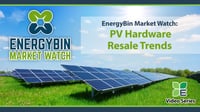 View this video to glean tips for finding deals and sourcing replacement parts in the secondary market.
View this video to glean tips for finding deals and sourcing replacement parts in the secondary market.
Types of wholesalers
Wholesalers tend to take on one of the following business models. Regardless of their business models, keep in mind that wholesalers are masters of distribution. This core competency makes them attractive to manufacturers, who desire to penetrate markets with their brands but prefer to stay focused on innovation rather than fulfilling customer orders.
Merchant or Stocking Wholesaler
Merchant wholesalers take title of the inventory. They may have multiple warehouses or one central storage facility. They stock a large number of SKUs and brands.
Distributor
Distributors are similar to merchant wholesalers except for one major difference. They choose to only represent a select number of brands. Distributors prefer to stock top brand names from manufacturers who have a stable track record and established bankability.
Agent Wholesaler
Agent wholesalers don’t take ownership of the inventory but rather represent manufacturers and other sellers. They facilitate transactions, including taking orders, negotiating contracts, scheduling delivery and collecting payment.
Reseller
A wholesale reseller is unique in the sense that they don't always follow a traditional vertical supply chain. Rather, they tend to acquire goods from a variety of supplier relationships like manufacturers, other wholesalers, liquidators, auction houses, and even developers, EPCs, and contractors with excess and second-hand material. They may work with solar equipment brokers to buy and sell goods as well.
 Read about helpful tips to verify a reseller's credibility and ensure you have a positive buying experience.
Read about helpful tips to verify a reseller's credibility and ensure you have a positive buying experience.
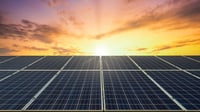 Read how a reseller found his niche as a surplus liquidator of stranded and distressed PV equipment.
Read how a reseller found his niche as a surplus liquidator of stranded and distressed PV equipment.
Many solar wholesalers and distributors have evolved their business models to offer value-added services. Some provide storage space to contractors and will drop ship equipment to project worksites. Some offer lines of credit.
And some buy back your excess and used equipment as long as the material has resale value. A number of suppliers are dedicated to making wholesale buying possible and accessible to all kinds of installers and resellers, regardless of your size and capacity.
 Learn how a broker's skill set benefits wholesale buyers.
Learn how a broker's skill set benefits wholesale buyers.
 Learn about the benefits of partnering with a solar equipment broker to gain a competitive edge.
Learn about the benefits of partnering with a solar equipment broker to gain a competitive edge.
Types of wholesale solar equipment available for sale
New
Typically, wholesale equipment is associated with new technology. If you browse any reputable wholesaler’s catalog, you’ll see the latest models of panels, inverters, racking, and other components. These goods come directly from the manufacturer and are under warranty. You won’t see much of a variance in hardware price for newly released models. But you may be able to save on other supply chain costs, such as shipping. Or, you may be able to increase your profit margin by working with a financial consultant who can strengthen your project proposal for financial opportunities.
 Read how freight brokers can help your company optimize your supply chain.
Read how freight brokers can help your company optimize your supply chain.
 Read about financial consultants who work as matchmakers in the solar industry to get projects funded.
Read about financial consultants who work as matchmakers in the solar industry to get projects funded.
Surplus
Surplus, also known as overstock, is new equipment under warranty. These ‘left-overs’ from manufacturers’ assembly lines are an excess of production that manufacturers are anxious to sell in order to clear lines for new production. Just like in other industries, surplus goods are sold at reduced prices.
B-Grade
B-Grade solar modules are new but come with minor aesthetic blemishes. These blemishes in no way affect the energy output or performance of the panel. Most manufacturers sell them with warranties. The price for B-Grade modules is significantly less, which means they’re harder to come by in the open market. But if you have the opportunity to buy them, you could save a big chunk of money.
Excess and Used
With the dawn of the secondary solar market, some wholesalers are now offering a mix of equipment for sale, including excess and used. Excess material from installations, equipment from cancelled or delayed jobs, and unused inventory from solar companies out of business is remarketed to buyers. Some wholesalers are not confined by geographic borders, and therefore, can sell equipment that may be obsolete in your market to buyers throughout the world.
 Learn about the secondary market and how it benefits the solar industry.
Learn about the secondary market and how it benefits the solar industry.
You may want to consider used equipment, particularly modules, as a cost-saving alternative. Due to a trend of premature decommissions, more and more quality modules are now available for sale.
Your savings will range between 50-75% less than new modules. The price depends on the age and efficiency level. Reputable wholesalers back these products with in-house testing, refurbishing services and limited warranties.
Note that unsalvageable modules do not have resale value. Such modules, especially those with shattered glass, should be recycled. There is a cost to recycle, which all solar system owners should be aware of and plan for when their systems eventually reach end-of-life.
Further Reading
 Learn where secondhand solar panels come from and how they are deemed safe for reuse.
Learn where secondhand solar panels come from and how they are deemed safe for reuse.
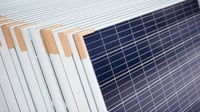 Learn more about the growing used solar panel market and what to consider when buying used modules.
Learn more about the growing used solar panel market and what to consider when buying used modules.
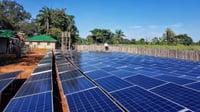 Read about factors that affect whether to repair, resell or recycle used solar panels.
Read about factors that affect whether to repair, resell or recycle used solar panels.
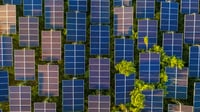 Read about the state of solar panel recycling in North America.
Read about the state of solar panel recycling in North America.
Buying Wholesale: Lowering costs and discovering opportunities
There are many benefits to buying wholesale solar equipment and streamlining your supply chain processes.
- Lower priced arrays help more people go solar. You probably got into this business because you believe in solar as an affordable renewable energy source and want to do your part to make it accessible to all. Don’t lose sight of that vision.
- Fulfill your customers’ needs in a shorter time frame. In the best case scenario, you can shorten your project timelines by working with a portfolio of suppliers who can fill orders quickly. In the worst case scenario, delayed equipment delivery could result in a cancelled order. According to SEIA, for each week a residential project is delayed, the client cancellation rate rises 5-10%.
“All we are doing is looking at the timeline, from the moment the customer gives us an order to the point when we collect the cash. And we are reducing the timeline by reducing the non-value adding wastes.” ~ Taiichi Ohno, father of Toyota Production System (TPS)
- When you seek out quotes from multiple suppliers, you level the playing field with your primary vendor. Don’t just look at the cost of hardware. Weigh all the value-added services that accompany your equipment to get a full package quote from multiple suppliers. Use quotes to negotiate with your primary vendor.
-
By offering competitive pricing, your business gains an advantage over your competitors. Any money you can save gives you some wiggle room to out-bid your competitors, which could also save money on customer acquisition.
- It also keeps you in the running when homeowners are thinking of DIY. The primary reason why homeowners turn to installing solar themselves is to save money. But your business has the expertise when it comes to safety and technical know-how. Prove to them that you’re worth doing business with because of the value that you offer and your willingness to efficiently execute their project. Even $1,000 savings could win over a prospect, which could easily be attained through bidding out your bill of materials and negotiating with suppliers.
- Cost savings help boost your profit margin. When you are focused on eliminating supply chain inconsistencies and waste, your profit margin increases over time. In business, everything is interconnected. Tightening up your supply chain leads to more happy customers, which leads to more referrals and in turn lowers the cost per customer.
- Cost savings passed onto your customers may open the door for add-on sales. Depending on the customer’s financial threshold, your dedication to help them save money on the front end could lead to storage, EV charging or other add-on sales. Even if they don’t add to their order right away, they may call you a year later to place an additional order. View the sales process as the beginning of a fundamental relationship with your customer.
 Broadcast your PV hardware buying needs on EnergyBin to get quotes from multiple suppliers.
Broadcast your PV hardware buying needs on EnergyBin to get quotes from multiple suppliers.
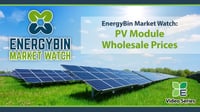 Get insights about PV module wholesale pricing and secondary market trends.
Get insights about PV module wholesale pricing and secondary market trends.
 Read how wholesale buyers offset supply chain costs by doing business in the secondary solar market.
Read how wholesale buyers offset supply chain costs by doing business in the secondary solar market.
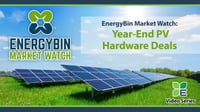 Learn about year-end PV hardware deals, an annual secondary market trend.
Learn about year-end PV hardware deals, an annual secondary market trend.
Factors to consider when buying wholesale solar equipment
When you’re ready to buy wholesale, be careful not to rush into any agreements or contracts. Do your research and ask your industry peers for advice to find the best deals and partners for your business. Follow these steps to save money and increase your profit margins.
1. Evaluate your needs and resources.
Do you have the sales volume to justify buying in bulk? Review your sales history and compare past sales with expected growth. Use the Economic Order Quantity (EOQ) formula to calculate the ideal order quantity that minimizes your holding costs, storage costs and order costs.
Do you have an accurate inventory management system complete with radio frequency identification (RFID) technology? This technology will ensure your stock stays organized and reorders happen when preset levels are reached.
Do you have the adequate storage/warehousing space? In addition to the space, you’ll want to make sure your inventory is added to your company insurance policy. Plan for security and utilities costs as well as internal and external transporting equipment. And don’t forget about packing supplies!
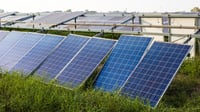 Read about factors to consider when it's time to repower a solar project, including sourcing new PV hardware for the available space.
Read about factors to consider when it's time to repower a solar project, including sourcing new PV hardware for the available space.
 Learn about managing supply chain risks when it comes to sourcing solar panels from an expert's perspective.
Learn about managing supply chain risks when it comes to sourcing solar panels from an expert's perspective.
2. Do your research.
There are a number of resources to turn to in order to learn more about wholesalers, product models, pricing and procurement. Trade shows are useful for previewing new equipment models and networking with multiple suppliers.
B2B exchanges, like EnergyBin, offer a wealth of information on products, pricing, supply & demand, and industry contacts. Trade publications report on product reviews, trends and industry news. You can also review what your competitors are doing.
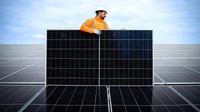 Gain insights from expert PV suppliers about navigating market conditions.
Gain insights from expert PV suppliers about navigating market conditions.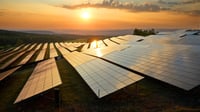 Read about market conditions that affect solar panel pricing and availability.
Read about market conditions that affect solar panel pricing and availability.
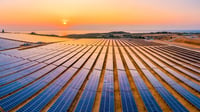 Review trends that are driving module availability and pricing in the secondary market to grow your business.
Review trends that are driving module availability and pricing in the secondary market to grow your business.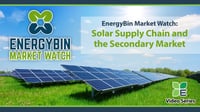 View the latest Market Watch discussion that covers solar supply chain issues and secondary market trends.
View the latest Market Watch discussion that covers solar supply chain issues and secondary market trends. Learn how to set up a competitive analysis, and discover tricks to collect competitive intelligence.
Learn how to set up a competitive analysis, and discover tricks to collect competitive intelligence.3. Network with the goal of developing long-term relationships.
So much of the solar industry is based on relationships, and there’s a genuine interest in collaborating to advance solar adoption. Much of the industry know-how isn’t written down anywhere. It’s learned by getting out there and asking questions. Make a good impression on industry peers by offering to help them with their goals and challenges.
 Learn how to network as a giver, an approach that will make you a person worth knowing and doing business with.
Learn how to network as a giver, an approach that will make you a person worth knowing and doing business with.
 Access these five sources to find quality PV products to buy at wholesale.
Access these five sources to find quality PV products to buy at wholesale.
 Grow your network by using the tools available to you on EnergyBin.
Grow your network by using the tools available to you on EnergyBin.
4. Interview potential suppliers.
When you’ve narrowed down a list of suppliers you’re interested in doing business with, be prepared to ask them qualifying questions.
- What products do they have available?
- What are the associated warranties per product?
- Do they require a minimum order?
- What is the turn-around time for delivery?
- What is the return policy?
- Do they offer financing options?
- What payment terms are available?
- What is their replacement policy for goods damaged during shipping?
- Do they offer drop-shipping?
- Do they have warehousing space available for lease?
- What other value-added services do they offer to their customers?
- Would they provide 2-3 references?
To ensure products you buy meet quality standards, corporate social responsibility requirements, environmental considerations, and applicable laws, ask these questions suggested by Solar Energy Industries Association:
- Do you follow the SEIA Traceability Protocol? If not, why not?
- Do you and your suppliers have a corporate social responsibility code of conduct or policy in place? If so, can you share it?
- Does your code of conduct address the areas covered by the International Labor Organization's core labor standards?
- Do you communicate your code of conduct to your suppliers?
- What steps do you take to ensure that you and your suppliers are in compliance with [region's] laws and regulations?
- Can you show where the product is manufactured and where the inputs come from?
- Can you provide the most recent independent audit reports regarding your claims?
- Who conducted the audit? Was it conducted by a qualified, independent third-party organization?
- Are the audits announced or unannounced? How often are audits conducted?
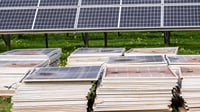 Learn about best practices for buying & selling solar panels for resale.
Learn about best practices for buying & selling solar panels for resale.
5. Be prepared for suppliers to interview you too.
The seller may require you to prove you are a legitimate business by presenting a copy of your business license, your federal Employer Identification Number (EIN), contractor license number and/or your reseller's permit. They will also want to address any expectations you have to determine if they can fulfill your needs.
 Review a checklist of best practices that buyers and sellers can implement to earn trust when trading solar equipment online.
Review a checklist of best practices that buyers and sellers can implement to earn trust when trading solar equipment online.
 Read about how to expand your supply chain with new vendors and increase your access to product availability.
Read about how to expand your supply chain with new vendors and increase your access to product availability.
What if I don’t have the sales volume to buy in bulk?
If you assess your sales history and projection numbers only to find wholesale buying is not possible for your business, you may still be able to get wholesale pricing. Here are a few options to consider.
Buying Co-Ops
You could join a buying cooperative, which is a group of solar companies that combine forces to increase their purchasing power. Independently, each member would not be able to meet minimum order quantities or negotiate optimal pricing. But together, they are able to pool their purchasing dollars and order larger quantities.
Solar Equipment Brokers
You could also partner with a broker, who can help you find the best deals. Brokers do all the leg work of facilitating transactions for you. Because brokerage firms represent a portfolio of clients, their negotiating and purchasing power is stronger than a single small business. Just like wholesalers, brokers offer a variety of value-added services, such as supply chain analysis, freight forwarding (importing/exporting), financing, warehousing, etc., to guarantee cost savings for their clients.
Tips for buying wholesale
1. Compare pricing online, and get multiple quotes.
The internet makes it easy to compare prices. Many online B2B marketplaces and exchanges promote price transparency to level the playing field for companies of all sizes.
Installers, EPCs and solar brokers looking for wholesale deals can request quotes from multiple sellers by joining online exchanges or partnering with a solar equipment broker. For example, EnergyBin members who send out RFQs for their material lists receive an average of 5-10 quotes within one business day.
Even if you have an established relationship with your primary distributor, it doesn’t hurt to request quotes from other sellers. Requesting quotes on a regular basis helps you keep tabs on price trends in the market.
 Read the 2024 PV Module Price Index presented by EnergyBin, which tracks prices for c-Si modules traded within the secondary market.
Read the 2024 PV Module Price Index presented by EnergyBin, which tracks prices for c-Si modules traded within the secondary market.
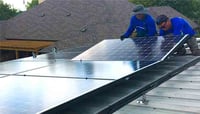 Read how one installer reduced their solar equipment costs by requesting multiple quotes.
Read how one installer reduced their solar equipment costs by requesting multiple quotes.
 Read about five tips for wholesale buyers to consider when shopping online.
Read about five tips for wholesale buyers to consider when shopping online.
 Learn how to request quotes from qualified vendors on EnergyBin.
Learn how to request quotes from qualified vendors on EnergyBin.
2. Seek out the expertise of a solar equipment broker.
Solar equipment brokers live and breathe equipment deals and are masters of efficient supply chain processes. They tend to use the internet to connect to the secondary market, gain global access to products and streamline transportation logistics processes.
Because of their specialized expertise in market intelligence and handling goods, brokers tend to save their clients a minimum of 20% on hardware and supply chain costs.
Connect with solar equipment brokers on EnergyBin.
 Learn more about wholesale solar equipment brokering.
Learn more about wholesale solar equipment brokering.
3. Nurture relationships with a variety of wholesalers.
Chances are you have a favorite vendor who you tend to call first when you have an order to place. But what happens when that vendor doesn’t have what you need?
Distributors in particular tend to stock limited SKUs. They prefer newly released models over older models that have a higher risk of discontinuation or becoming obsolete. Yet, you may be in the market for older models to satisfy your customer demand.
You may also discover that your primary vendor can get you what you need but is back-logged for a duration that could adversely affect your daily operations. Would you delay projects while you wait for equipment to arrive, knowing that delays could result in cancellations? Or, would you turn to other suppliers who can meet your needs today?
For these reasons, it makes good business sense to have a number of wholesalers on your short-call list.
 Learn how the R2 Standard for solar panel reuse and recycling maintains quality while offering a lower-cost option to buyers.
Learn how the R2 Standard for solar panel reuse and recycling maintains quality while offering a lower-cost option to buyers.
 Learn about opportunities in solar panel reuse and recycling to help your customers with asset lifecycle management solutions.
Learn about opportunities in solar panel reuse and recycling to help your customers with asset lifecycle management solutions.
4. Only do business with reputable sellers.
To protect yourself from risks such as counterfeit products, negligence, botched orders, etc., make sure you pre-qualify sellers. Use the interview questions previously provided.
But before you call them, verify that the company is a legitimate company. This step can quickly be done for U.S. companies by visiting the Secretary of State website for the state the business is headquartered in. Search the company name in the business directory listing. If the company is incorporated, the search results will produce details of incorporation and whether the company is in good business standing.
Reputable wholesalers come with success records and recommendations that can be easily located online. They maintain professional digital appearances (websites, Google business listings and social media profiles). Their customers have written positive reviews about their products and services. They tend to be members of trade associations and/or chambers of commerce. In the U.S., they may also be rated by the Better Business Bureau.
You can also connect to industry peers on online business communities, like EnergyBin, which is exclusive to vetted PV professionals who must provide references before they can join the network.
For used/refurbished equipment, only buy from a seller who has established credibility and who guarantees the equipment meets generally accepted safety parameters for your geographic location. Verify that the supplier offers a money-back guarantee if equipment does not perform at advertised power outputs. Determine if the seller offers a limited service warranty on refurbished goods.
 Learn how to smartly buy refurbished solar panels and inverters.
Learn how to smartly buy refurbished solar panels and inverters.
5. Inspect your order upon receipt.
When a shipment arrives, plan to receive it in a timely manner. Check for damage. Solar panels are especially fragile because 80% of their weight is glass.
Verify that the products received are what you ordered. Confirm you received the full quantity you ordered. If the order is wrong or something got broken during shipping, contact the seller immediately. Reputable sellers will work with you to remedy the situation.
If you are buying used/refurbished equipment in bulk, it’s a good idea to test the equipment upon delivery. Run electrical tests to verify IEC 61730 international standards as well as your local electrical code standards are met. If you find discrepancies between what condition the seller advertised and the true condition of the equipment, you’ll want to address your concerns promptly with the seller.
6. Maintain an accurate and up-to-date inventory list.
When your equipment arrives, enter each SKU and quantity into your inventory database. Better yet, invest in RFID technology that allows you to scan items as they come in and go out. Scanning automatically updates your inventory list. You can also set up alerts to reorder when quantities hit preset levels.
Document as much information as possible, such as model numbers, frame/cell colors, quantities, price, etc. Take photos of each item and file electronic data sheets.
7. Keep your stockroom/warehouse clean and organized.
In addition to clean inventory records, maintain an organized storage space. You don’t want to get into a situation of your database showing inventory in stock but you can’t find it in your warehouse. Establish an organization model that works for you and train your employees to uphold it.
You may also want to plan on semi-annual or annual inventory counts to closely manage any variances in your records. Usually, companies plan to conduct physical counts prior to reordering. Inventory counts are also a way to verify the accuracy of your inventory turnover.
8. Host product demos for your employees and customers.
Product demos educate employees and customers on features, functionality, handling and maintenance. Taking a proactive approach to training staff and customers on proper use has many benefits.
You’ll reduce internal damage. Your sales staff will feel more confident about selling the hardware you stock. Your customers will understand upfront that their arrays are comprised of quality components. And they’ll have general knowledge about caring for the equipment, which leads to longer life and optimal output.
There are a number of formats to distribute product demo content. You could give live presentations during company meetings. You could review information one-on-one with customers. You could host webinars or write how-to manuals.
One of the most popular formats is video, which only requires a basic camera for recording – even a smart phone can do the job, basic editing software and a hosting platform like YouTube. Here’s an example of a product demo video for customers that addresses the question, How do I take care of my solar panels?
 Learn how to create video content that engages prospects and customers without breaking your budget.
Learn how to create video content that engages prospects and customers without breaking your budget.
9. Don't buy in bulk unless you're confident you can resell your inventory.
The last predicament you want to fall into is stuck with inventory that you can’t sell. Although you receive significant discounts when you buy wholesale quantities, the purchase is still a large investment. You would only want to tie up cash in inventory if you know you can turn the inventory over in a reasonable time frame.
What exactly is a reasonable time frame? It depends on economic conditions. So long as a product is retaining its market value, you’re safe to hold onto it. Oftentimes, cash on hand is more valuable than inventory.
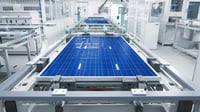 Watch market trends to snag buy-low deals on solar panels and other PV hardware parts.
Watch market trends to snag buy-low deals on solar panels and other PV hardware parts.
10. If your primary customers aren't buying, resell your excess stock in the secondary market. Or, partner with a solar equipment broker who can resell your excess stock for you.
If you happen to end up with inventory that isn’t selling and your wholesaler won’t take it back, consider reselling equipment in the secondary market or partner with a solar equipment broker who can get the job done for you. There’s always a buyer somewhere in the world for solar equipment with resale value.
Adding a resale department to your business could be a new opportunity to boost your profit margins. Online B2B exchanges, like EnergyBin, make it easy to list inventory for sale. Note, depending on your location, you may need to apply for a reseller license with your local jurisdiction.
Or, if you’d rather have someone else take over the management of your excess stock, turn to a broker. Reputable brokers will come to your place of business, audit your inventory and offer a bid quote. Some will offer a cash buyout for an entire lot. They may also help pack the material for shipment.
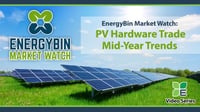 Watch the video to learn about PV hardware trade trends.
Watch the video to learn about PV hardware trade trends.
 Get insights on the PV hardware trade market to kick-start your resale division.
Get insights on the PV hardware trade market to kick-start your resale division.
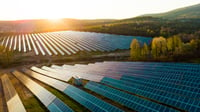 Read how solar companies connect to new buyers to resell PV equipment from cancelled or delayed projects.
Read how solar companies connect to new buyers to resell PV equipment from cancelled or delayed projects.
 Learn more about selling your excess stock online.
Learn more about selling your excess stock online.
Concluding remarks
Wholesale buying can save your company money. When paired with efficient supply chain management practices, wholesale buying can increase your profit margins. Most importantly, it helps to bring the cost to go solar down, which accelerates the advancement of solar worldwide.
This guide will be frequently updated with additional information about wholesale buying for contractors, installers, EPCs and solar equipment brokers.
If you’d like to speak with a connection expert at EnergyBin about wholesale buying and supply chain management best practices, contact us today.
More Resources
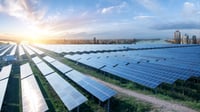 View more articles about wholesale solar equipment buying and selling.
View more articles about wholesale solar equipment buying and selling.
